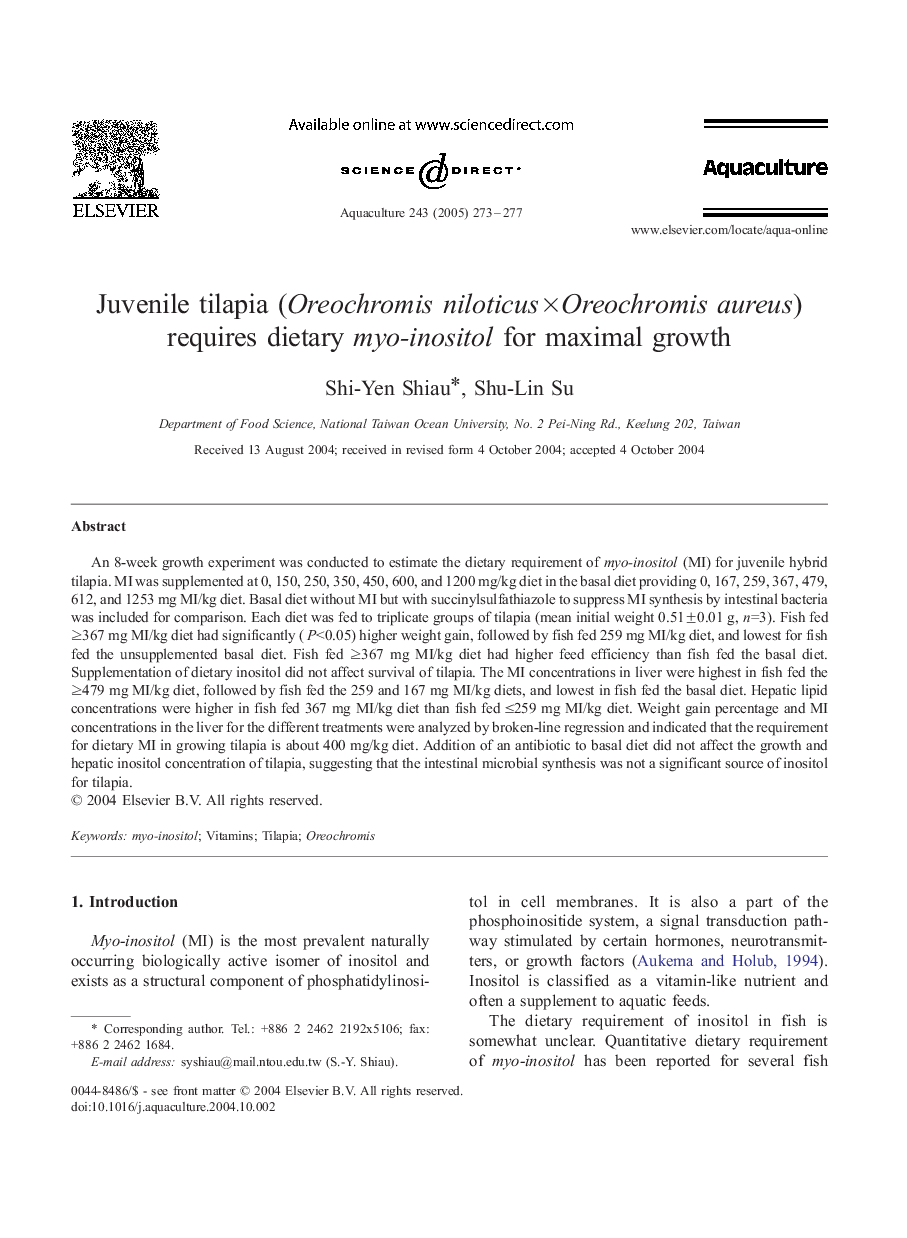| Article ID | Journal | Published Year | Pages | File Type |
|---|---|---|---|---|
| 8975008 | Aquaculture | 2005 | 5 Pages |
Abstract
An 8-week growth experiment was conducted to estimate the dietary requirement of myo-inositol (MI) for juvenile hybrid tilapia. MI was supplemented at 0, 150, 250, 350, 450, 600, and 1200 mg/kg diet in the basal diet providing 0, 167, 259, 367, 479, 612, and 1253 mg MI/kg diet. Basal diet without MI but with succinylsulfathiazole to suppress MI synthesis by intestinal bacteria was included for comparison. Each diet was fed to triplicate groups of tilapia (mean initial weight 0.51±0.01 g, n=3). Fish fed â¥367 mg MI/kg diet had significantly (P<0.05) higher weight gain, followed by fish fed 259 mg MI/kg diet, and lowest for fish fed the unsupplemented basal diet. Fish fed â¥367 mg MI/kg diet had higher feed efficiency than fish fed the basal diet. Supplementation of dietary inositol did not affect survival of tilapia. The MI concentrations in liver were highest in fish fed the â¥479 mg MI/kg diet, followed by fish fed the 259 and 167 mg MI/kg diets, and lowest in fish fed the basal diet. Hepatic lipid concentrations were higher in fish fed 367 mg MI/kg diet than fish fed â¤259 mg MI/kg diet. Weight gain percentage and MI concentrations in the liver for the different treatments were analyzed by broken-line regression and indicated that the requirement for dietary MI in growing tilapia is about 400 mg/kg diet. Addition of an antibiotic to basal diet did not affect the growth and hepatic inositol concentration of tilapia, suggesting that the intestinal microbial synthesis was not a significant source of inositol for tilapia.
Related Topics
Life Sciences
Agricultural and Biological Sciences
Aquatic Science
Authors
Shi-Yen Shiau, Shu-Lin Su,
